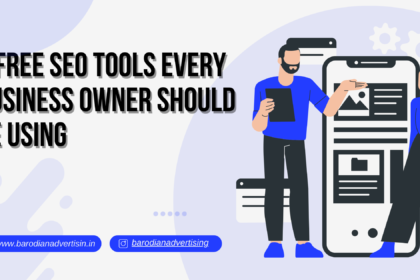
In today’s digital landscape, a strong online presence is critical for businesses of all sizes. Search Engine Optimization (SEO) plays a major role in that presence, influencing how easily potential customers can find your website. But SEO can feel complex, especially for business owners without a background in marketing.
The good news? There are fantastic free SEO tools available to help you optimize your website and climb search engine rankings. Here are 5 essential free tools every business owner should be using:
-
Google Search Console (GSC): Offered directly by Google, GSC is a treasure trove of information about your website’s health from an SEO perspective. It identifies crawl errors, broken links, and mobile usability issues. It also provides valuable insights into how users find your website through search queries, allowing you to refine your content strategy for better visibility.
-
Google Analytics (GA): Understanding your website traffic is crucial for SEO success. GA dives deep into user behavior, revealing demographics, traffic sources, and most popular content. This data helps you identify which keywords are driving traffic, what content resonates with your audience, and areas for improvement. By analyzing bounce rates and time spent on pages, you can pinpoint sections that need optimization to keep users engaged.
-
Google Keyword Planner: Keyword research is the foundation of any SEO strategy. Keyword Planner, again from Google, helps you discover relevant keywords that users are searching for. It provides search volume estimates and competition levels, allowing you to target keywords that are both high-potential and achievable. By incorporating these keywords into your website content and meta descriptions, you increase your chances of showing up in search engine results pages (SERPs) for relevant searches.
-
Answer the Public (ATP): This free tool goes beyond simple keyword research. It taps into user search queries, providing a visual map of questions, prepositions, and comparisons people use related to your topic. By understanding these “long-tail” keywords and the different ways users might be phrasing their searches, you can create content that directly addresses their needs and intent. This not only improves SEO but also positions you as a trusted authority in your field.
-
Yoast SEO (for WordPress users): If your website is built on WordPress, Yoast SEO is a must-have plugin. It acts as your on-page optimization assistant, guiding you through the process of optimizing your content for target keywords. Yoast analyzes your content’s readability, suggests internal linking opportunities, and helps craft compelling meta descriptions and title tags – all crucial elements for strong SEO.
Remember, SEO is an ongoing process. By consistently using these free tools and implementing their insights, you’ll be well on your way to improving your website’s ranking, attracting more organic traffic, and ultimately, growing your business.
Bonus Tip: While not exactly a tool, staying up-to-date with the latest SEO trends is essential. Google’s algorithms are constantly evolving, so following SEO industry publications and blogs can help you adapt your strategy for continued success.
Here are some additional points to consider when using these free SEO tools:
- Focus on quality content: SEO is not just about keywords. It’s about creating high-quality content that is informative, engaging, and relevant to your target audience. Google rewards websites that provide value to users, so make sure your content is well-written, informative, and up-to-date.
- Build backlinks: Backlinks are links from other websites to your website. They act as a vote of confidence in your content and can significantly improve your website’s authority and ranking in search results. There are many ways to build backlinks, such as guest blogging, creating infographics, and participating in online communities.
- Mobile-friendliness: More and more people are searching the web from their mobile devices. Google prioritizes mobile-friendly websites in search results, so make sure your website is responsive and easy to navigate on all devices.
- Be patient: SEO is a long-term strategy. It takes time and effort to see results. However, by consistently using these free tools and following SEO best practices, you can gradually improve your website’s ranking and organic traffic.




